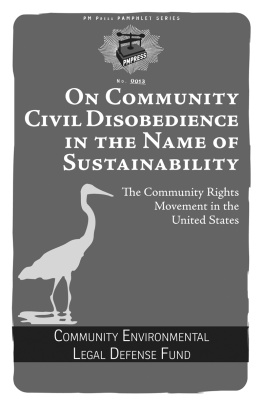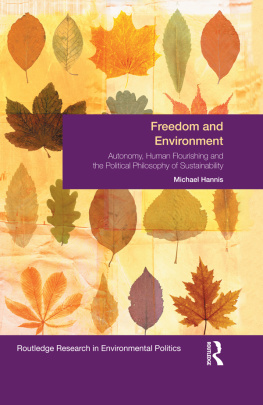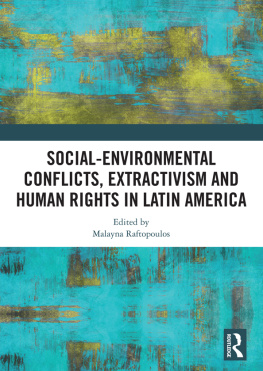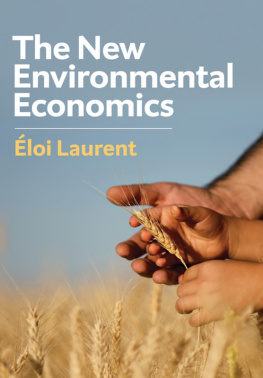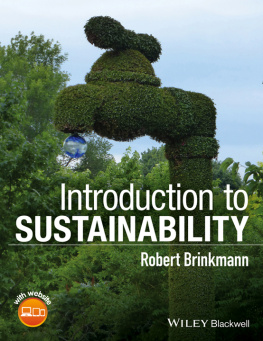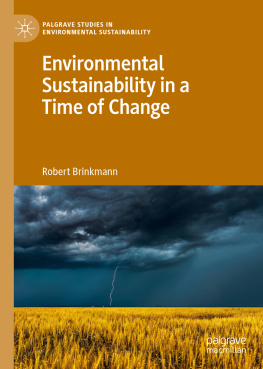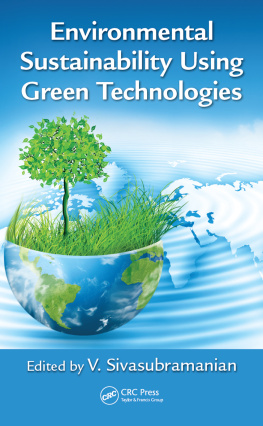Woods - Human Rights and Environmental Sustainability
Here you can read online Woods - Human Rights and Environmental Sustainability full text of the book (entire story) in english for free. Download pdf and epub, get meaning, cover and reviews about this ebook. City: Cheltenham;UK, year: 2010, publisher: Edward Elgar Publishing Limited, genre: Politics. Description of the work, (preface) as well as reviews are available. Best literature library LitArk.com created for fans of good reading and offers a wide selection of genres:
Romance novel
Science fiction
Adventure
Detective
Science
History
Home and family
Prose
Art
Politics
Computer
Non-fiction
Religion
Business
Children
Humor
Choose a favorite category and find really read worthwhile books. Enjoy immersion in the world of imagination, feel the emotions of the characters or learn something new for yourself, make an fascinating discovery.

Human Rights and Environmental Sustainability: summary, description and annotation
We offer to read an annotation, description, summary or preface (depends on what the author of the book "Human Rights and Environmental Sustainability" wrote himself). If you haven't found the necessary information about the book — write in the comments, we will try to find it.
Human Rights and Environmental Sustainability — read online for free the complete book (whole text) full work
Below is the text of the book, divided by pages. System saving the place of the last page read, allows you to conveniently read the book "Human Rights and Environmental Sustainability" online for free, without having to search again every time where you left off. Put a bookmark, and you can go to the page where you finished reading at any time.
Font size:
Interval:
Bookmark:
Human Rights and Environmental Sustainability
In memory of
Catherine Paterson
16 September 1932 to 1 December 2008


Abbreviations
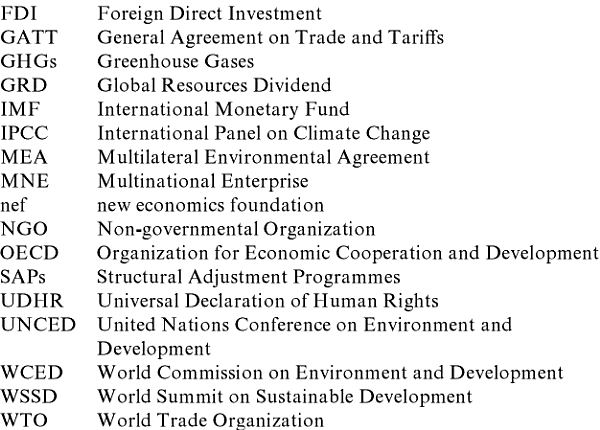
Acknowledgements
This book began life as a doctoral thesis at the University of Glasgow. I am grateful to the staff and students of the Politics Department there for their support and encouragement. I am particularly indebted to my then supervisor, Chris Berry, for his calm guidance, his generosity and patience with me, and his professional impatience with anything that smacks of nonsense or hubris in political theory (and in PhD theses). My two doctoral examiners, John Barry and Paul Graham, were generous with their time and detailed in their criticisms, for which I am very grateful. Thanks in particular to John for his encouragement as a fellow green and his support of my post-PhD career.
The Economic and Social Research Council funded my doctoral research; I welcome the opportunity to record my gratitude to them, to the Carnegie Trust for the Universities of Scotland, who awarded me a Small Research Grant, and to the University of Glasgow, for financial support. I am also grateful to the British Academy, whose generous award of a Postdoctoral Fellowship has given me the breathing space necessary to transform the thesis into this book. My postdoc home is the Department of Politics at the University of York, a very hospitable place to do political philosophy. I thank my new colleagues, in particular Sue Mendus, for welcoming me and encouraging me in my research. At Edward Elgar Publishing I am indebted to Felicity Plester, Laura Seward and all those who have worked on the book, as well as three initial reviewers, for their enthusiasm and professionalism.
Over the lifetime of this project, the following people have also helped at some point, in some way, and I am happy to have this opportunity to record my sincere thanks: Will Bain, Derek Bell, Antje Brown, Laura Cashman, James Chalmers, Rowan Cruft, Stewart Davidson, Andy Dobson, Katsu Furusawa, Mike Hannis, Tim Hayward, Simon Hope, Carl Knight, Peter McCaffery, Corey MacIvor, John ONeill, Craig Smith, Neil Stammers, Marcel Wissenburg and Alasdair Young. Additionally, I thank the participants of the various conferences and research seminars where the ideas put forward in this book were first tried out. The book is much improved for the input of all those thanked here, but I claim for myself the credit for any remaining errors. Parts of the second and last chapters are based on work previously published in Res Publica and Environmental Politics, and I am grateful to Springer and to Taylor and Francis, respectively, for permission to reuse the material here.
Finally, I must record three personal debts: my thanks to the late Tony McManus, for convincing me that education wasnt such a bad thing after all; my late grandmother, Catherine Paterson, whose attitude to my persisting in education so long was that I hadnt really grown up yet; and Cristina Johnston, for patiently reading and commenting on the manuscript at several stages, and for much else besides.
Kerri Woods
Edinburgh, January 2010
Introduction
In this book I call into question the assumed harmony between human rights norms and the demands of environmental sustainability. Human rights represent the dominant normative framework against which political standards are judged, and in terms of which political claims are made. Environmental problems are increasingly evident, globally and locally. More and more, we find activists and theorists presenting environmental claims in human rights terms. The prevalence of this strategy suggests confidence about the compatibility of the human rights and environmental agendas. Yet human rights emerge from, and to a considerable degree continue to reflect, a liberal tradition in political theory that has often been held to be inhospitable to environmental values.
The questions animating this study are both political and conceptual: from a green point of view, what, politically, is gained and lost, by adopting the language and institutions of human rights? Conceptually, is there coherence or tension between the values of human rights and environmental sustainability? Is the idea of environmental human rights plausible, and defensible? Given, on the one hand, the significant environmental challenges we face, and, on the other hand, the dominance of human rights as a normative framework, these questions demand our attention.
The focus here is specifically on environmental sustainability, rather than the more often discussed sustainable development. Sustainable development is said to foster human rights and environmental goals simultaneously, indeed, symbiotically. But my concern is that human rights and environmental sustainability might sometimes be in tension with one another: if that is so, then the idea of sustainable development is itself beset with tensions.
My strategy in what follows is to critique human rights from a green point of view, and environmental sustainability from a human rights point of view, as well as to assess the criticisms of each from within human rights theory or green theory that might shed light on the question of whether environmental sustainability can be adequately addressed in terms of a human rights framework. To be clear, such criticisms as I present of both human rights and environmental sustainability, as political goals and moral claims, are intended to be friendly. I remain committed to the belief that human rights ought to be respected, and that achieving environmental sustainability is a moral imperative. But I am less confident than others that human rights can be taken as they are and appropriated for green ends.
The argument is structured as follows. In Chapter 1 I argue that economic globalization necessarily engenders environmental degradation, from which human rights problems follow. In view of this, environmental sustainability is itself a human rights issue. The question nevertheless remains as to whether environmental sustainability is best addressed in terms of the language and institutions of human rights. In Chapter 2 I explore the philosophically contested territory of what might be said to justify human rights claims, and, in Chapter 3, I assess some criticisms of the contemporary global human rights regime, and a proposed alternative: Thomas Pogges institutional model. In Chapter 4 I outline what I take to be the necessary conditions of environmental sustainability, and argue for integrity as a core environmental value. In Chapter 5 I address the question of what sort of political institutions foster sustainability. I also argue that an account of rights is vital to environmental sustainability. In Chapter 6 I draw together the assessments of human rights and environmental sustainability by considering (i) whether rights or sustainability could legitimately be prioritized over one another, and (ii) whether the idea of environmental human rights is (a) conceptually coherent and (b) politically attractive.
1. Globalization, human rights and the environment
Both aspects of mans environment, the natural and the man-made, are essential to his well-being and to the enjoyment of basic human rights and the right to life itself. (United Nations Conference on the Human Environment, Stockholm, 1972)
Font size:
Interval:
Bookmark:
Similar books «Human Rights and Environmental Sustainability»
Look at similar books to Human Rights and Environmental Sustainability. We have selected literature similar in name and meaning in the hope of providing readers with more options to find new, interesting, not yet read works.
Discussion, reviews of the book Human Rights and Environmental Sustainability and just readers' own opinions. Leave your comments, write what you think about the work, its meaning or the main characters. Specify what exactly you liked and what you didn't like, and why you think so.







